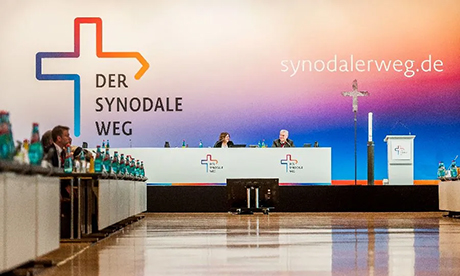The German “synodal way” has failed to pass a resolution to change the Church’s approach to sexual ethics, with bishops not supporting the members of the synod.
The resolution, called “Life in succeeding relationships – The principles of renewed sexual ethics,” was voted on by the synodal meeting’s 209 participants, of which more than two-thirds voted in favour.
However, the resolution failed to gain the support of two-thirds of the synod’s bishops. Despite 61% of voting German bishops supporting the resolution, 21 bishops who voted ‘no’ prevented its passage.
The resolution argued that it would not be possible to reorient pastoral care without redefining the Church’s sexual teachings significantly. It stated that it is “urgently necessary to overcome some of the restrictions in questions of sexuality, for reasons of sexual science as well as theology.”
The resolution also contended that “same-sex sexuality – also expressed in sexual acts – is … not a sin that causes separation from God, and it is not to be judged as intrinsically bad.”
Following the vote, delegates spoke for over two hours about the decision. Many expressed frustration with the bishops’ votes, saying that they had not listened to their people and that their decision would harm German Catholics and foment division in the Church.
The synodal way’s official social media accounts reported that Bishop Georg Bätzing, president of the German bishops’ conference, said he was “personally disappointed with this vote” and that “the practice of synodality has not yet gone far enough.”
Cardinal Reinhard Marx, former president of the bishops’ conference, also said that he was “very disappointed.” He said that the bishops must publicly stand by their positions and justify them.
Irme Stetter-Karp, co-president of the synodal way and leader of the lay-run Central Committee of German Catholics, said after the vote that she believed bishops had not expressed their real views during the debate.
“There is one point in which I am particularly disappointed: that there are bishops in this assembly who are not prepared to voice their opinions,” she explained.
The lay leader voiced her frustration: “Why do we invest so much energy and time? For our Church. And that’s why I’m staying here. Even if I ask myself the question: Who knows whether this is the right investment of time?”
Sources
Additional readingNews category: World.




